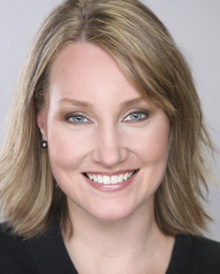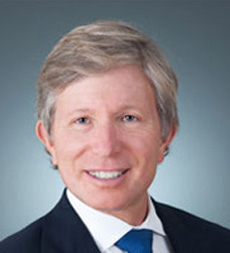Lawyers, Experts Fear Dire Consequences as the Pace of Legal Work Accelerates
To be sure, repeatedly missing family dinners or working an exhausting schedule is nothing new in the legal profession. But some lawyers are downright nostalgic about the days when they were forced to wait for an adversary's reply by U.S. mail or stay at the printers until all the commas in a document were fixed.
April 29, 2019 at 10:35 AM
6 minute read
 More malpractice claims caused by human error. Constant stress. Fractured relationships. These are just some of the consequences that experts and lawyers fear will only get worse as the pace of legal work accelerates.
More malpractice claims caused by human error. Constant stress. Fractured relationships. These are just some of the consequences that experts and lawyers fear will only get worse as the pace of legal work accelerates.
In more than a dozen interviews with New York lawyers, experts on workplace culture and even significant others, a complex picture emerged. Some lawyers find the technology that allows them to see a Broadway show while waiting for an important document to be a blessing. But others see the 24/7 legal world as debilitating and are looking for ways to manage unreasonable clients.
To be sure, repeatedly missing family dinners or working an exhausting schedule is nothing new in the legal profession. But some lawyers are downright nostalgic about the days when they were forced to wait for an adversary's reply by U.S. mail or stay at the printers until all the commas in a document were fixed. At least, they say, that gave them time to ponder their next move.
“We want to feel that we're knowledgeable and wise and smart and have answers but in reality, we have to have time to think,” said Heidi Brown, a Brooklyn Law School professor who advises lawyers and law students on how to overcome fear and anxiety.
The detrimental effect of unrealistic deadlines set by clients and colleagues has been well-documented by the American Bar Association and is a focus of its efforts to improve lawyer well-being. The New York State Bar Association has also cautioned lawyers against imposing unnecessary deadlines on adversaries in its new standards on civility, released this month.
Onerous deadlines that once may have been seen as a way to put an adversary on edge are now being blamed for a host of problems including a spike in anxiety and depression, an increase in human error and rising dissatisfaction among spouses who tell experts they don't want their partners with them if their attention is focused elsewhere.
 Paula Davis-Laack
Paula Davis-Laack“I spoke at a partner retreat last week and had the opportunity to sit down with some of the spouses who were attending and every single one of them brought up this topic. That's one of the things that families say very clearly,” said Paula Davis-Laack, who left the legal profession to get a master's in psychology and is now a law firm consultant. “The culture is I'm going to miss out on something if I don't check my phone every 10 minutes. We've made it so that everything is a fire drill and so we're on all the time and that just creates a ton of stress.”
Patrick Krill, a behavioral health expert focused on the legal industry, tackled the topic of unreasonable deadlines set by partners in a column for ALM. which publishes the New York Law Journal. In it, he wrote, “The pace of life and business are increasing, while our available downtime seems to be shrinking exponentially with every iteration of the iPhone. Any reasonable and candid person would acknowledge that it feels like an unsustainable path. And it feels that way because it is.”
Davis-Laack, who left the legal profession because of burnout, said there appears to be a relationship between the quickening pace and malpractice claims caused by human error. She said one legal malpractice provider saw the percent of claims caused by mistakes increase from 13% to 63% over five years. More study is needed to get to the root cause, she said.
Some lawyers are dissuading clients from bothering them in the evening and on weekends and turning down work that interferes with family time. But many lawyers shrug their shoulders and say they have no choice but to move even faster to keep up.
 Henry Morgenbesser
Henry Morgenbesser“I think the practice of the law itself, whether you are at a big firm or small firm, has become more demanding. We're in an instant-gratification society. I think technology has increased that expectation,” said Henry Morgenbesser, a name partner at Katzke & Morgenbesser.
“My wife tells me I hunch over a computer all day and the first thing I do when I come home is hunch over it on my kitchen table,' he said.
But Morgenbesser is keenly aware that now that he has his own practice he has more control over when and where he works. Morgenbesser's partner, Michael Katzke, as a matter of fact, turned away a promising new client in favor of watching his son play lacrosse. The CEO called him on a Friday and wanted the work done by Sunday.
Michael Levine, a partner at Rappaport, Glass, Levine & Zullo, said cases are litigated with more intensity than they were when he first started practicing and clients expect more than ever. He frequently calls clients at 9 p.m. on a weekday or on the weekend.
“They want to hear from me. I say take note that your attorney is working on your matter on a Sunday morning. I do that in a teasing way but I want them to know their attorney is working on their matter on a weekend day because that's what they expect nowadays,” he said.
Andrew Oringer, chair of the committee on attorney professionalism for the New York State Bar Association and co-chair of Dechert's Employee Retirement Income Security Act and executive compensation group, said there is a way to put the most important people in your life first without shortchanging the legal practice.
“Not that you have utter control over the work part but if you're the kind of person who's willing to give up your weekends, then grab something back during the weeknights. If you choose to work an extra 7 hours on Friday night, you might free up a lot of your Saturday,” he said.
“I think part of it is getting the other people in your life to understand it,” he said. “My wife would be upset by this kind of stuff. I'd be outside and she'd be with our two friends and I'd miss the lion's share of dinner. I used to say to her you cannot have it both ways. You cannot have all the rewards and none of the downsides.”
Read More:
This content has been archived. It is available through our partners, LexisNexis® and Bloomberg Law.
To view this content, please continue to their sites.
Not a Lexis Subscriber?
Subscribe Now
Not a Bloomberg Law Subscriber?
Subscribe Now
NOT FOR REPRINT
© 2025 ALM Global, LLC, All Rights Reserved. Request academic re-use from www.copyright.com. All other uses, submit a request to [email protected]. For more information visit Asset & Logo Licensing.
You Might Like
View All
Justice 'Weaponization Working Group' Will Examine Officials Who Investigated Trump, US AG Bondi Says

Lawyers Across Political Spectrum Launch Public Interest Team to Litigate Against Antisemitism
4 minute read
'Landmark' New York Commission Set to Study Overburdened, Under-Resourced Family Courts

Trending Stories
- 1States Accuse Trump of Thwarting Court's Funding Restoration Order
- 2Microsoft Becomes Latest Tech Company to Face Claims of Stealing Marketing Commissions From Influencers
- 3Coral Gables Attorney Busted for Stalking Lawyer
- 4Trump's DOJ Delays Releasing Jan. 6 FBI Agents List Under Consent Order
- 5Securities Report Says That 2024 Settlements Passed a Total of $5.2B
Who Got The Work
J. Brugh Lower of Gibbons has entered an appearance for industrial equipment supplier Devco Corporation in a pending trademark infringement lawsuit. The suit, accusing the defendant of selling knock-off Graco products, was filed Dec. 18 in New Jersey District Court by Rivkin Radler on behalf of Graco Inc. and Graco Minnesota. The case, assigned to U.S. District Judge Zahid N. Quraishi, is 3:24-cv-11294, Graco Inc. et al v. Devco Corporation.
Who Got The Work
Rebecca Maller-Stein and Kent A. Yalowitz of Arnold & Porter Kaye Scholer have entered their appearances for Hanaco Venture Capital and its executives, Lior Prosor and David Frankel, in a pending securities lawsuit. The action, filed on Dec. 24 in New York Southern District Court by Zell, Aron & Co. on behalf of Goldeneye Advisors, accuses the defendants of negligently and fraudulently managing the plaintiff's $1 million investment. The case, assigned to U.S. District Judge Vernon S. Broderick, is 1:24-cv-09918, Goldeneye Advisors, LLC v. Hanaco Venture Capital, Ltd. et al.
Who Got The Work
Attorneys from A&O Shearman has stepped in as defense counsel for Toronto-Dominion Bank and other defendants in a pending securities class action. The suit, filed Dec. 11 in New York Southern District Court by Bleichmar Fonti & Auld, accuses the defendants of concealing the bank's 'pervasive' deficiencies in regards to its compliance with the Bank Secrecy Act and the quality of its anti-money laundering controls. The case, assigned to U.S. District Judge Arun Subramanian, is 1:24-cv-09445, Gonzalez v. The Toronto-Dominion Bank et al.
Who Got The Work
Crown Castle International, a Pennsylvania company providing shared communications infrastructure, has turned to Luke D. Wolf of Gordon Rees Scully Mansukhani to fend off a pending breach-of-contract lawsuit. The court action, filed Nov. 25 in Michigan Eastern District Court by Hooper Hathaway PC on behalf of The Town Residences LLC, accuses Crown Castle of failing to transfer approximately $30,000 in utility payments from T-Mobile in breach of a roof-top lease and assignment agreement. The case, assigned to U.S. District Judge Susan K. Declercq, is 2:24-cv-13131, The Town Residences LLC v. T-Mobile US, Inc. et al.
Who Got The Work
Wilfred P. Coronato and Daniel M. Schwartz of McCarter & English have stepped in as defense counsel to Electrolux Home Products Inc. in a pending product liability lawsuit. The court action, filed Nov. 26 in New York Eastern District Court by Poulos Lopiccolo PC and Nagel Rice LLP on behalf of David Stern, alleges that the defendant's refrigerators’ drawers and shelving repeatedly break and fall apart within months after purchase. The case, assigned to U.S. District Judge Joan M. Azrack, is 2:24-cv-08204, Stern v. Electrolux Home Products, Inc.
Featured Firms
Law Offices of Gary Martin Hays & Associates, P.C.
(470) 294-1674
Law Offices of Mark E. Salomone
(857) 444-6468
Smith & Hassler
(713) 739-1250






